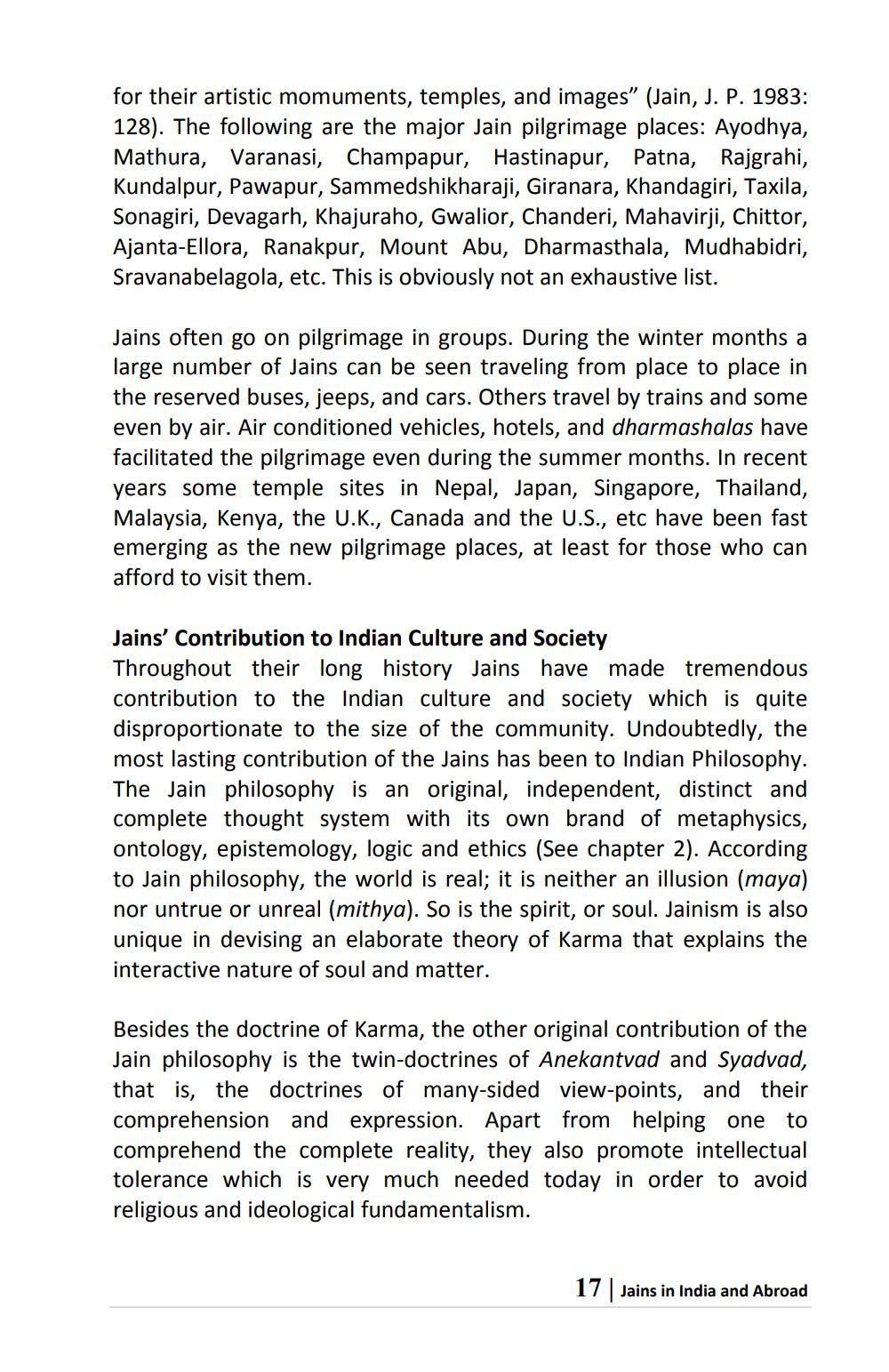________________
for their artistic momuments, temples, and images” (Jain, J. P. 1983: 128). The following are the major Jain pilgrimage places: Ayodhya, Mathura, Varanasi, Champapur, Hastinapur, Patna, Rajgrahi, Kundalpur, Pawapur, Sammedshikharaji, Giranara, Khandagiri, Taxila, Sonagiri, Devagarh, Khajuraho, Gwalior, Chanderi, Mahavirji, Chittor, Ajanta-Ellora, Ranakpur, Mount Abu, Dharmasthala, Mudhabidri, Sravanabelagola, etc. This is obviously not an exhaustive list.
Jains often go on pilgrimage in groups. During the winter months a large number of Jains can be seen traveling from place to place in the reserved buses, jeeps, and cars. Others travel by trains and some even by air. Air conditioned vehicles, hotels, and dharmashalas have facilitated the pilgrimage even during the summer months. In recent years some temple sites in Nepal, Japan, Singapore, Thailand, Malaysia, Kenya, the U.K., Canada and the U.S., etc have been fast emerging as the new pilgrimage places, at least for those who can afford to visit them.
Jains' Contribution to Indian Culture and Society Throughout their long history Jains have made tremendous contribution to the Indian culture and society which is quite disproportionate to the size of the community. Undoubtedly, the most lasting contribution of the Jains has been to Indian Philosophy. The Jain philosophy is an original, independent, distinct and complete thought system with its own brand of metaphysics, ontology, epistemology, logic and ethics (See chapter 2). According to Jain philosophy, the world is real; it is neither an illusion (maya) nor untrue or unreal (mithya). So is the spirit, or soul. Jainism is also unique in devising an elaborate theory of Karma that explains the interactive nature of soul and matter.
Besides the doctrine of Karma, the other original contribution of the Jain philosophy is the twin-doctrines of Anekantvad and Syadvad, that is, the doctrines of many-sided view-points, and their comprehension and expression. Apart from helping one to comprehend the complete reality, they also promote intellectual tolerance which is very much needed today in order to avoid religious and ideological fundamentalism.
Jains in India and Abroad




